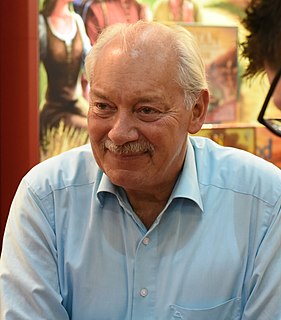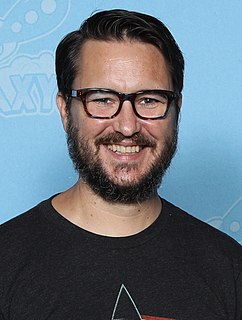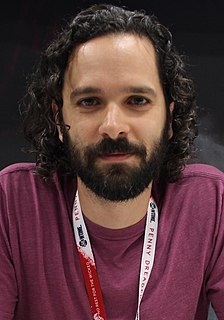A Quote by Klaus Teuber
I have been an avid reader since my youth. Because I also liked to play tabletop games, I soon felt the desire to make the story narrated in a book or an aspect of that story come alive in a game.
Related Quotes
When I was in my late twenties, a friend suggested that, since I was an avid SF reader and had been since I was barely a teenager, that since it didn't look like the poetry was going where I wanted, I might try writing a science fiction story. I did, and the first story I ever wrote was 'The Great American Economy.'
Literature is an aspect of story and story is all that exists to make sense of reality. War is a story. Now you begin to see how powerful story is because it informs our worldview and our every action, our every justification is a story. So how can story not be truly transformative? I've seen it happen in real ways, not in sentimental ways or in the jargon of New Age liberal ideology.
I knew what I wanted to do when I set out. I knew that I wanted to write a book that told the story, obviously. I wanted it be comedy first, because I felt like there already had been childhood druggy stories that were very serious, and I felt that the unique thing here was that I was a comic and I could tell the story with some levity, and I have been laughing at these stories my whole life.
A good story is alive, ever changing and growing as it meets each listener or reader in a spirited and unique encounter, while the moralistic tale is not only dead on arrival, it's already been embalmed. It's safer that way. When a lively story goes dancing out to meet the imagination of a child, the teller loses control over meaning. The child gets to decide what the story means.
It's like creating an artificial loop saying, 'You didn't play the game the way I wanted you to play, so now you're punished and you're going to come back and play it again until you do what I want you to do.' In an action game, I can get that – why not? It's all about skills. But in a story-driven experience it doesn't make any sense.
Looking back, I do think one of the reasons 'Thirteen Reasons Why' has been so successful is not because it deals with serious issues but because I had a unique and interesting way to tell that story. I knew the issues were going to be dealt with in the book, but I felt my job was to write the story as entertainingly as possible.
I want studios that make story-based games to start taking their stories more seriously. And that doesn't mean hiring a big shot writer from Hollywood; it means that story becomes integral to making your game. I don't see how you can achieve that without having an in-house writer that sits next to the designer, helping them make their levels, talking with the engineers about where we can tell the story more dynamically, pushing at technology.
































